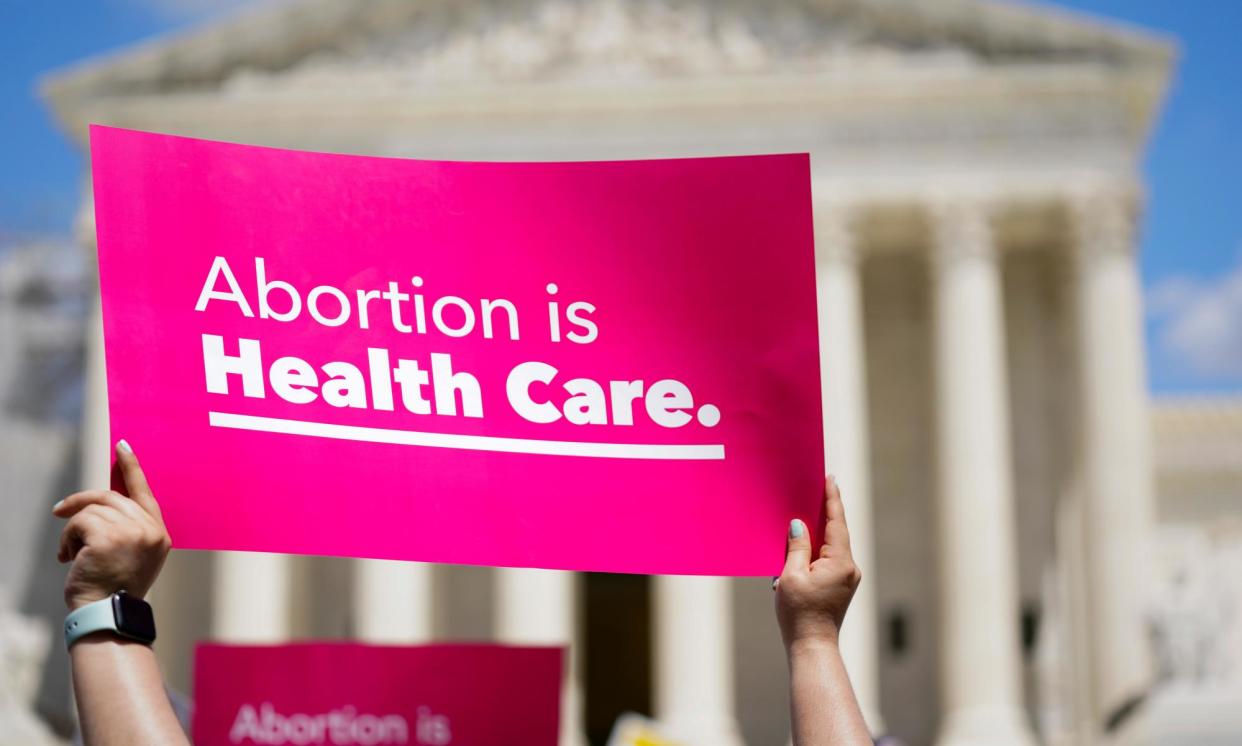Over half of US women on probation or parole need permission to travel for abortion – study

The number of women on probation or parole who must seek permission to travel for an abortion more than doubled to 635,000 in two years since the supreme court overturned the federal right to abortion, a new report finds.
Fourteen states have near-total abortion bans and 21 restrict the procedure. Together with near ubiquitous travel restrictions imposed by probation and parole, more than half of women on probation or parole in the US must seek permission to travel before obtaining an abortion.
Related: US doctors navigate mounting hurdles to get basic abortion training post-Roe
The policies are a “one-two punch” for women caught in the criminal justice system, the report’s author said.
“Doing the math I was shocked it was so many,” said Wendy Sawyer, research director at the Prison Policy Initiative, which published the new report.
The research came just ahead of today – the second anniversary of the Dobbs decision, which the supreme court used to overturn Roe v Wade in 2022.
“An additional 400,000 women is a lot of additional women to be put in this very precarious situation,” she said.
Travel has become one of the key ways Americans have continued to legally terminate pregnancies, even amid abortion bans. An estimated 171,000 Americans traveled for an abortion in 2023 – many from southern states with sprawling criminal justice systems.
Before Roe v Wade was overturned, it was already difficult for many women on probation and parole to access abortion. Anti-abortion advocates successfully closed clinics and limited access to abortion, particularly in the south and midwest, even before the constitutional right was overturned.
Now, hundreds of thousands more women face the additional burden of getting permission to travel for an abortion from a corrections officer. An estimated 82% of women on probation and 85% of women on parole live in states that ban or restrict abortion and also restrict travel for people under supervision.
“We know that a lot of the states that have enacted some of the strictest abortion restrictions are also the most punitive,” said Sawyer. “We’re talking about a lot of states in the south where we have total abortion bans or six-week bans, but they also are states that put a lot of people – not only behind bars – but under community supervision.”
Across the country, the rate of women who travel for abortion has nearly doubled, from one in five to one in 10, according to the Guttmacher Institute, a reproductive rights research organization.
Women under supervision are likely to be poor, the majority with incomes below $20,000 a year, and the primary caregivers of children or other family members. Many struggle with addiction, and are in fact on probation or parole for drug charges, Sawyer said. Women on probation and parole are also more likely to report chronic health conditions and disabilities than the general public.
Overall, it is a group of women, Sawyer said, “juggling a lot of responsibilities with not a lot of resources”.

 Yahoo News
Yahoo News 
